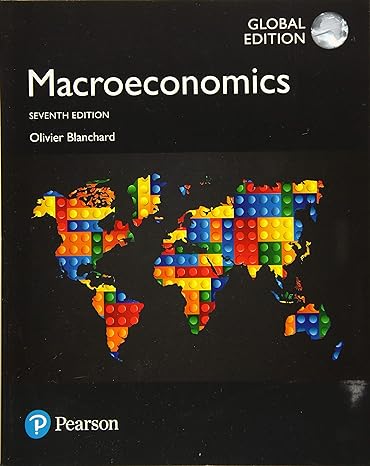Consider first the goods market model with constant investment that we saw in Chapter 3. Consumption is
Question:
Consider first the goods market model with constant investment that we saw in Chapter 3.
Consumption is given by
\[
\begin{gathered}
C=c_{0}+c_{1}(Y-T) \\
\text { and } \mathrm{I}, \mathrm{G}, \text { and } \mathrm{T} \text { are given. }
\end{gathered}
\]
a. Solve for equilibrium output. What is the value of the multiplier for a change in autonomous spending?
Now let investment depend on both sales and the interest rate:
\[
I=b_{0}+b_{1} Y-b_{2} i
\]
b. Solve for equilibrium output using the methods learned in Chapter 3.
At a given interest rate, why is the effect of a change in autonomous spending bigger than what it was in part (a)? Why? (Assume \(c_{1}+b_{1}<1\).)
c. Suppose the central bank chooses an interest rate of \(\bar{i}\). Solve for equilibrium output at that interest rate.
d. Draw the equilibrium of this economy using an IS-LM diagram.
Step by Step Answer:





